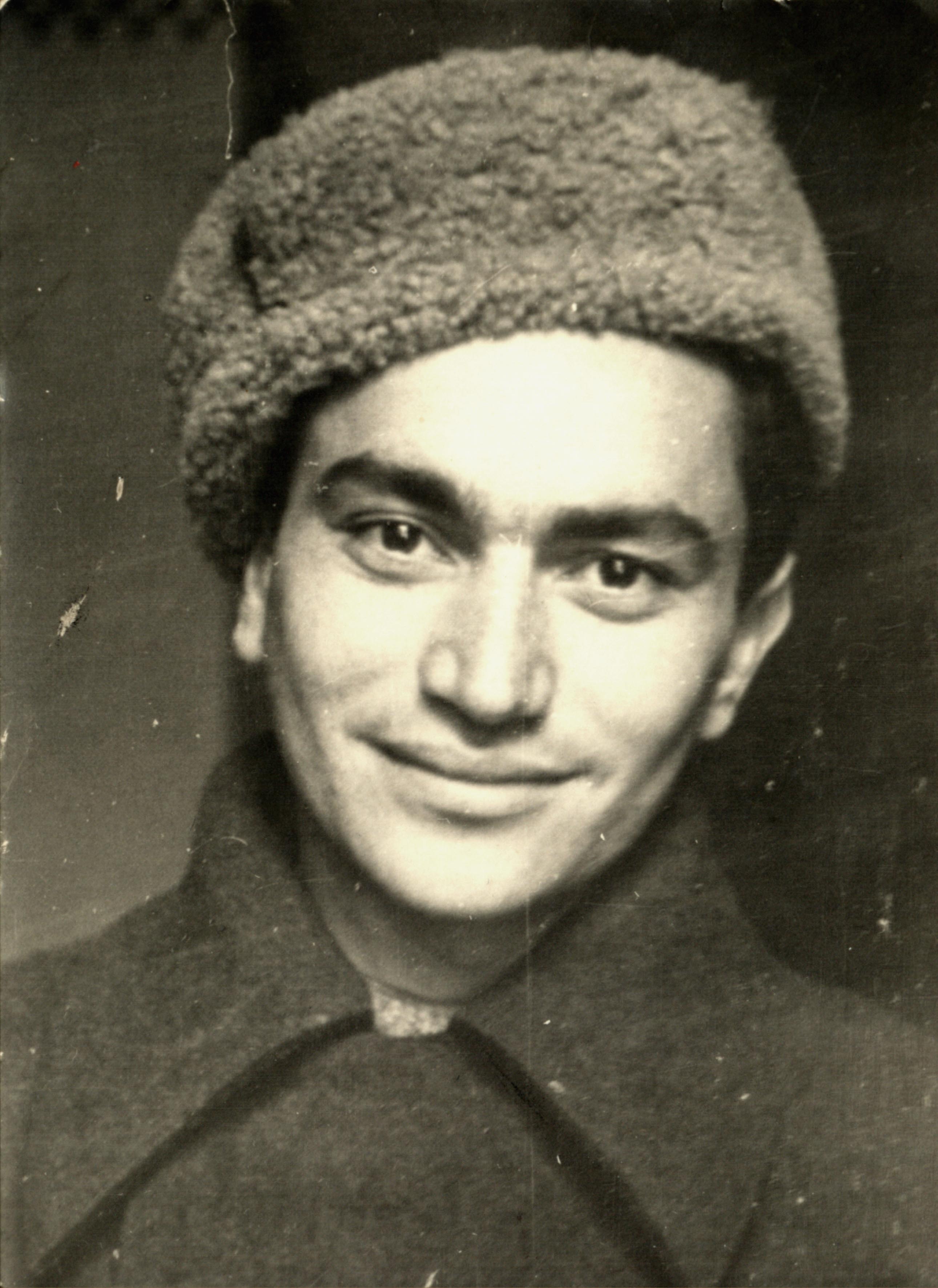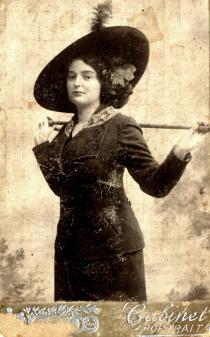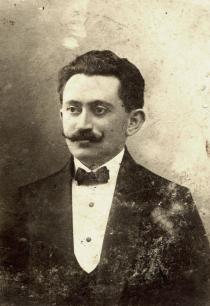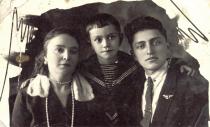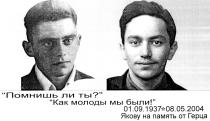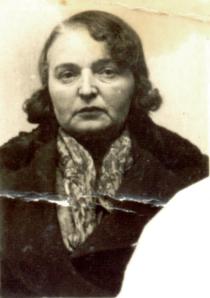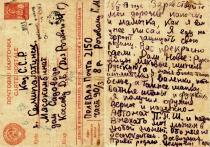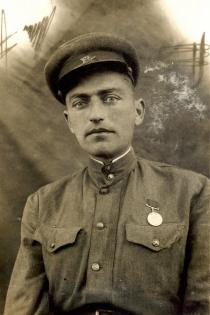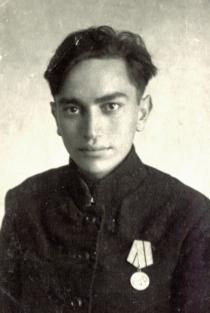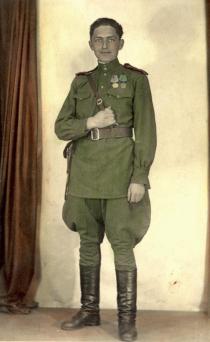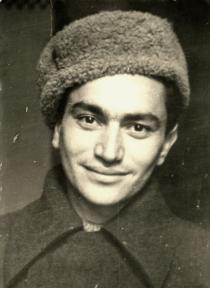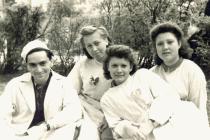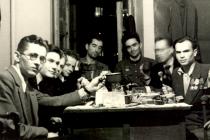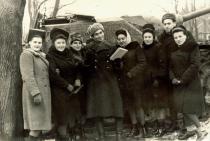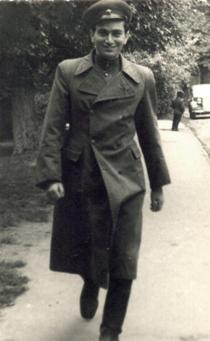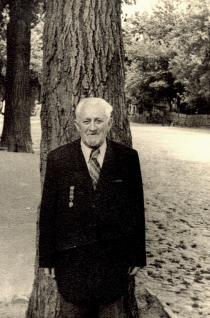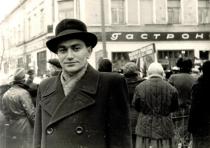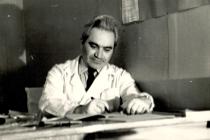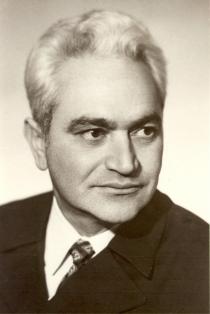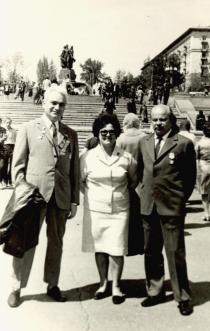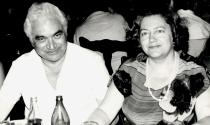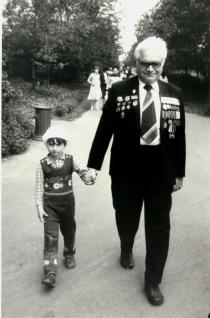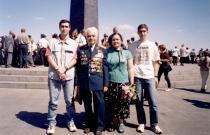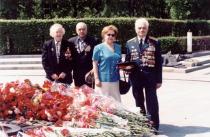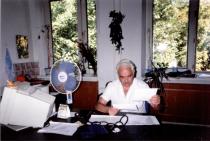This is I, Hertz Rogovoy, the fresher of Kiev medical institute. The snapshot was taken in Kiev, in March, 1945.
In 1943 after Stalingrad Battle I was to be conferred the rank of a lieutenant. I was appointed the commander of the 112th platoon the regiment of the 37th Stalingrad Guards division 62, 8,. Beginning of 1943 was characterized by fierce battle. It was the period when Germans captured Orel and we had Kursk. At 6 a.m. on March 6, 1943 we called to attack. Germans noticed us around 9 a.m. and started such a fire that there was no way we could cover. The bullet hit my gun, I bent and the splinter from my butt reached my face, and I still have that scar. The bullet hit my shoulder on the tangent. I crawled back. Then the mortar bomb landed by me, and the fragment of the bomb pierced my left thigh. The hemorrhage was severe. I lost conscience from and acute pain. When I came around, I began to crawl. I lost the boot, and froze left foot. Then a percussion bullet, which hit my tibia, and exploded when it came out. I saw a huge torn hole in my felt pants. Later I found out that the bullet exploded and tore 10,5 cm of tibia. Spell bone was safe, and served as a natural frame. My leg was saved for the sake of that, though it became crooked. I fell in the trench without any thoughts, and stayed there for 24 hours or more. I lost conscience, then I came around. And there in the trench being feeble, wounded, with forlorn hope, I believed in God, he was my only hope. I needed to pray. I was praying, lost the conscience and came around. I kept on praying. I told the God that I was young, and had not seen anything in life, and would have made my parents suffer, if I had died …
Certainly, I would have died there if there were not six people from our squadron who were on the way back on the same route. They put down 4 long rifles. One of them took uniform jacket off and put over the rifles. They carried me to the village on those impromptu stretches. I was taken to medical battalion. They bandaged me. There were no bandage materials. They used white moss instead of cotton wool, instead of frame - bars and sticks, bandages were laundered. Then I was to undergo the operation. I remember that the tools were boiled in samovar. In 12 days we were brought to Kursk and put in the hospital. They moved me from one hospital to another. I was operated on, and cured… I was in Moscow, Vladimir and Kaluga hospitals. In the last hospital, Izhevsk, I stayed the longest. I traveled for over 1500 km being wounded, moving from one hospital to another. In Izhevsk I was commissioned and sent home. I was awarded the Order of the Great Patriotic War second degree for the battles on Kursk Curve. I got Order of the Red Star for the last battle.
I came to Semipalatinsk [Kazakhstan, about 3000 km from Kiev], where my parents was in evacuation. I began to work at school as a military training teacher. The time I spent in hospital influenced by choice of the future profession. I was firm - if I were to survive, I would become a doctor. In August, 1944 I went to Kiev to enter the Kiev Medical Institute.
I was given a room in the hostel of the medical institute. All those years I got excellent marks. Of course it was difficult. I had been walking on crutches for all those years. Often my wound was open, and the splinters were coming out, causing acute pain. There were 850 ladies and 40 men in my graduation year. Those guys were mostly handicapped like me. Those who were healthy then in 1944, were at war. There were armless and legless people among us.
